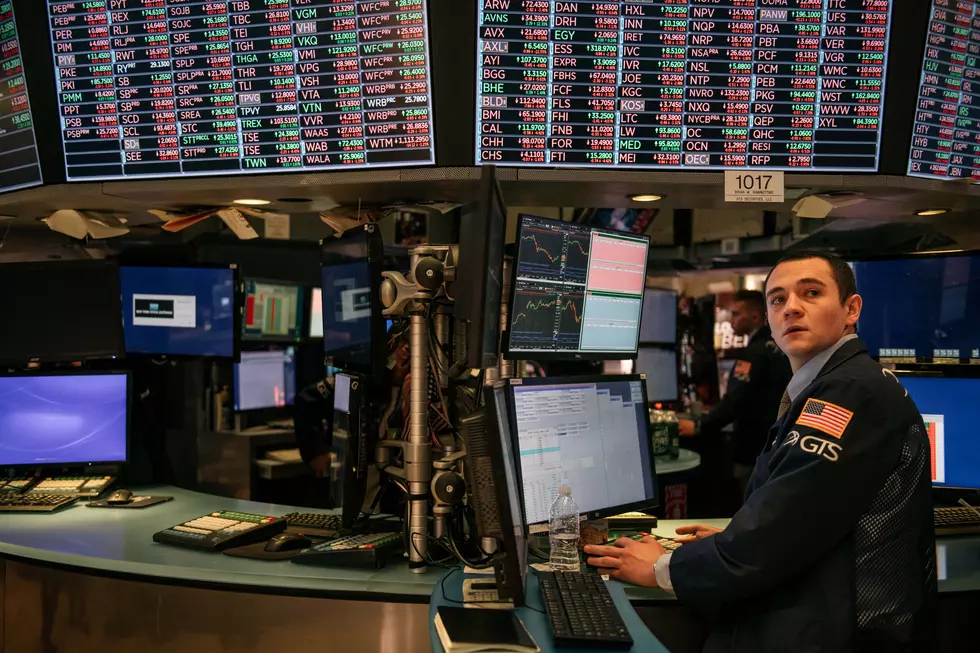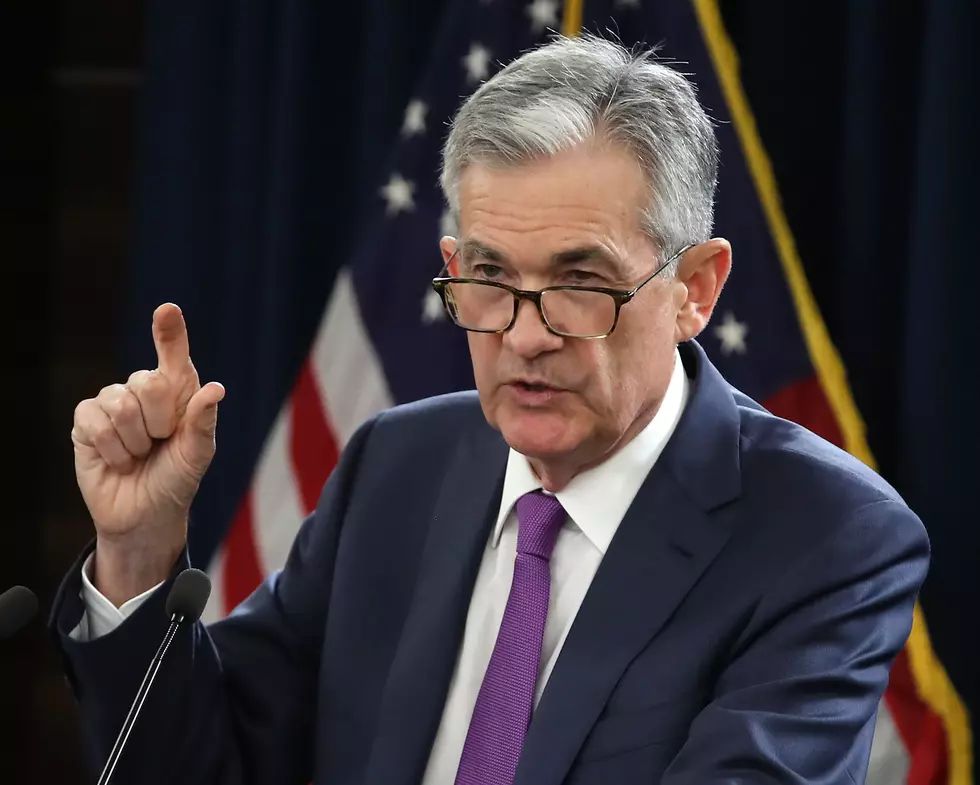Stocks Leap On Central Banks’ Coordinated Action
Central banks around the world took joint action Wednesday give banks easier access to dollars, jolting stock markets and easing fears of a global credit crisis. The Dow Jones industrial average soared more than 400 points.
Markets in Europe also surged. Germany's DAX index jumped 5.4 percent. The euro and commodities prices rose sharply. U.S. Treasury prices fell as demand weakened for ultra-safe assets.
Big U.S. banks were among the top gainers on the stock market. JPMorgan Chase & Co. jumped 6.4 percent; Morgan Stanley 7.3 percent, Citigroup Inc. 6.4 percent. Banks hold large amounts of European debt and would have the most to lose in the event of a default by a European country, something investors around the world have been increasingly fearful of.
Wednesday's coordinated action by the central banks of Europe, the U.S., Britain, Canada, Japan and Switzerland greatly alleviated those worries by cutting short-term borrowing rates to banks, giving them much easier access to money.
The central banks were responding to fears that Europe's two-year old debt crisis could escalate suddenly, touching off a global credit freeze similar to what followed the 2008 collapse of Lehman Brothers. The decision to allow Lehman to fail is now widely seen as a mistake.
"The central banks of the world have resolved that there will not be a liquidity shortage" said David Kotok, chairman and chief investment officer of Cumberland Advisors. "And they have learned their lessons from 2008. They don't want to take small steps and do anything incrementally, but make a big bold move that is credible."
The Dow Jones industrial average jumped 409 points, or 3.5 percent, to 11,985 at 11:30 a.m. Eastern time. The Dow has more than gained back the 564-point slump it has last week and is up 6.5 percent so far this week. The last time it closed up more than 400 points was Aug. 11.
The Standard & Poor's 500 index gained 42, or 3.5 percent, to 1,236. The Nasdaq composite index jumped 88, or 3.5 percent, to 2,604.
Borrowing rates for European nations have skyrocketed on concerns that the European debt crisis has engulfed nations such as Italy which are too big to bail out. Borrowing rates for Italy, Spain and others have soared.
Banks need dollars to fund their daily operations. Their access dried up as U.S. money market funds reduced their lending to European banks.
The central banks' action takes some pressure off the financial system, which has signaled in recent days that banks are losing faith in their trading partners. Banks need to trust each other to maintain healthy flows of credit and keep the system working.
Some traders cautioned that Wednesday's action doesn't address the fundamental problems posed by heavily indebted European nations.
"People are taking comfort that it's globally coordinated," said Peter Tchir, who runs the hedge fund TF Market Advisors. "In itself it does nothing, but the bulls are anticipating that this is just the beginning of central bank and other actions" to ease market pressures.
A successful action would be expected to reduce borrowing costs for Italy and other nations, Tchir said. Italy's borrowing costs edged lower Wednesday, but the nation was still paying more than 7 percent interest for 10-year borrowing — a dangerously high level.
European finance ministers in Brussels have been meeting since Tuesday but have failed to deliver a clearer sense of how the currency union will proceed.
Investor sentiment was also lifted by China's move to reduce bank reserve levels Wednesday to release money for lending and help shore up slowing growth. Higher growth in China could be crucial for a global economy that's suffering in the wake of European debt crisis.
Beijing announced that the amount of money China's commercial lenders must hold in reserve will be cut by 0.5 percent of their deposits, effective Dec. 5. It was the first easing of monetary policy in three years and analysts are expecting more.
More From K2 Radio









